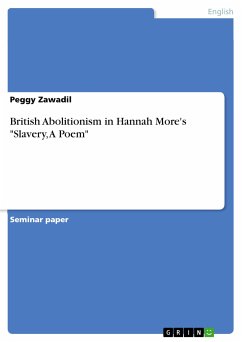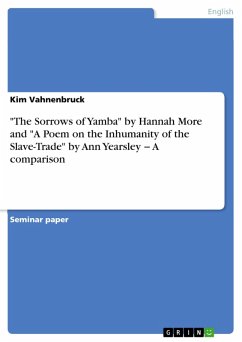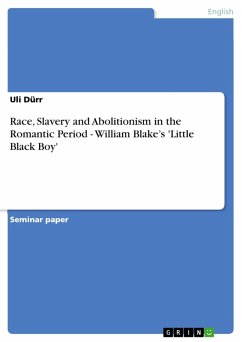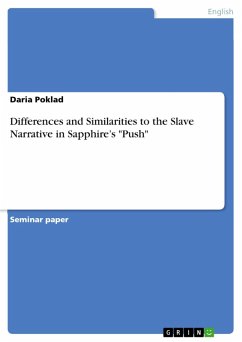Seminar paper from the year 2012 in the subject English Language and Literature Studies - Literature, grade: 2,0, University of Potsdam, language: English, abstract: In the following, the author wants to explore in what way the poem "Slavery, A Poem" by Hannah More serves abolitionist means. A quote of Hannah More (1745 - 1833) in a letter to her sister states: "I grieve I did not set about it sooner; as it must now be done in such a hurry... but, good or bad, if it does not come out at the particular moment when the discussion comes on in Parliament, it will not be worth a straw." (Feldman, 1997, p. 470) This statement is referring to her poem "Slavery, A Poem." that she wrote in 1788. Reading this quotation one can act on the assumption that the poem and its time of publication served a specific purpose. Knowing that Hannah More was an active member of the British abolitionism and knowing that she wrote the poem for this very reason; we can come to the following study question: In what way is the typical British abolitionism represented in Hannah Mores poem?
Dieser Download kann aus rechtlichen Gründen nur mit Rechnungsadresse in A, B, BG, CY, CZ, D, DK, EW, E, FIN, F, GR, HR, H, IRL, I, LT, L, LR, M, NL, PL, P, R, S, SLO, SK ausgeliefert werden.
Hinweis: Dieser Artikel kann nur an eine deutsche Lieferadresse ausgeliefert werden.









